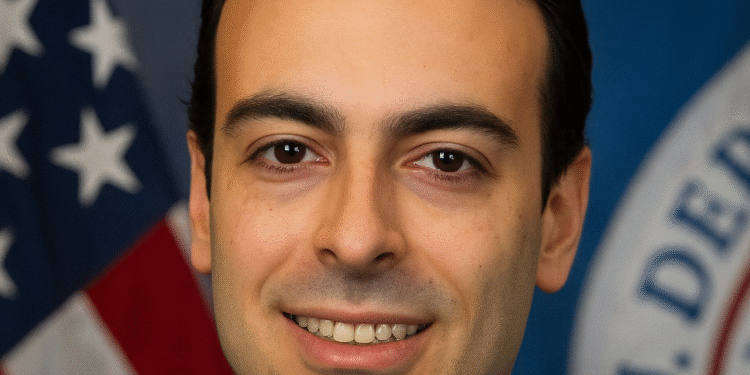Paul Ingrassia, President Donald Trump’s nominee to lead a key federal watchdog agency, was forced to abruptly withdraw his nomination on Wednesday after a firestorm over a series of alleged text messages in which he described himself as having a “Nazi streak” and denounced holidays honoring Black Americans.
The 30-year-old’s exit marks a rare capitulation for the Trump administration, which has seen near-total Republican loyalty in the Senate. Ingrassia claimed he stepped aside because he lacked “enough Republican votes,” but his departure came only after senior GOP leaders publicly declared his candidacy dead in the water following the scandal.
The downfall began when Politico published the alleged texts, which were sent to a group of Republican operates. In them, Ingrassia reportedly declared the Martin Luther King Jr. holiday should be “tossed into the seventh circle of hell” and similarly disparaged Black History Month and Juneteenth.

The most explosive message read: “I do have a Nazi streak in me from time to time.”
The revelations triggered immediate bipartisan condemnation. Senate Majority Leader John Thune, the chamber’s top Republican, bluntly told reporters, “He’s not going to pass,” and expressed his hope that the White House would withdraw the nomination. Senate Democratic Leader Chuck Schumer called the messages “foul and disqualifying.”
Facing certain defeat, Ingrassia’s defense was as controversial as the texts themselves. His lawyer, Edward Paltzik, did not confirm the messages’ authenticity, vaguely suggesting they could be “AI-generated.” In a statement that only deepened the controversy, he argued that even if real, the texts were “self-deprecating and satirical humour” that mocked liberals for calling MAGA supporters “Nazis.”
This defense failed to convince his own party, leading to a swift political collapse. Ingrassia’s withdrawal leaves a critical post—the head of the Office of Special Counsel, an agency tasked with protecting government whistleblowers—vacant and emphasises the limits of party loyalty in the face of overtly bigoted rhetoric.
Why It Matters
Paul Ingrassia’s failed nomination is more than a personal scandal; it is a litmus test for the boundaries of acceptable discourse in today’s Republican Party. That his candidacy collapsed not over policy, but over text messages glorifying Nazism and disparaging foundational figures of Black American history, reveals a line that even a Trump-loyal Senate is unwilling to cross publicly.
His lawyer’s defense—that joking about having a “Nazi streak” is merely political satire—is as revealing as the original offense. It suggests a political environment where such analogies are considered part of the repertoire, even as they prove too toxic for a confirmation vote.

















